The best external HDDs for music production rotate at 7200 RPM.
If you have the means, you might benefit from working with RAID-compliant hard drives that utilize Thunderbolt technology. However, you can just as easily use an external HDD that isn’t RAID-compliant and that uses the USB3.0 (or higher) protocol.
You’ll just need to be more diligent with your data backup process.
We’ll be going over some of the best external HDDs for music production in this article that cover the full-spectrum of what you’ll find out there.
If you’re looking to host your sample libraries on an external drive though, I highly recommend reading an article I wrote entitled “Best External SSDs for Sample Libraries”.
- Should you use RAID drives for music production?
- Glyph Studio RAID External Hard Drive – Thunderbolt 2/USB3.0 (7200RPM)
- OWC Envoy Pro Elektron USB-C Portable NVMe SSD – USB 3.2
- Western Digital WD_Black D10 External Hard Drive – USB 3.2
- Western Digital WD Blue + Vantec NST-371C31-BK HDD Enclosure
- Summary: Best External HDDs for Music Production
Should you use RAID hard drives for music production?
If you’re not familiar with RAID, it stands for “Redundant Array of Independent Disks”.
I’m not going to get too deep into the technical details for the sake of this article, but just keep in mind that using RAID storage increases performance and potentially even security.
It can also streamline the process of backing up your data if using RAID 1.
There are 6 different types of RAID configurations (0-5), but I’m going to recommend using RAID 1 for the purposes of music production.
RAID 1 is also referred to as “disk mirroring”.
Essentially, you’ll have an exact copy of your internal hard drive using an external RAID drive. This is great for security because in the event that one of your disks gets corrupted and/or fails, your data will be safely stored on the other drive.
It also increases performance in regards to READ speed because both drives (internal and external) can be read from at the same time.
It’s even faster if your RAID hard drive uses Thunderbolt technology!
Is it absolutely necessary for music production though?
Not at all. I personally don’t work with RAID and I’ll explain why.
The only reason I still use an external HDD is to backup my data. I don’t actually run any projects from it or even use it to host my sample libraries.
For those two tasks, I use an external SSD (read more about that HERE).
That being said, the external HDD I use is basically used as a “mirror drive”, but not completely because I decide which files/folders get backed up.
RAID 1 would duplicate EVERYTHING (applications, application data, etc…).
I don’t deny that using RAID has its advantages, but the cost isn’t worth it for me.
I only recommend it if you’re going to be using an external HDD for all your music production related tasks (storing/backing up projects, hosting sample libraries, etc…).
Otherwise, you’re better off using the external HDD + SSD method that I work with.
Glyph Studio RAID External Hard Drive – Thunderbolt 2/USB3.0 (7200RPM)
The best option for RAID-compliant external HDDs is the Glyph Studio RAID External Hard Drive. What I like most about this one is the fact that it allows you to use Thunderbolt 2 connectivity, but also provides USB3.0 connectivity if you’re not up to date.
Here are the specifications:
- Size Options: 4TB/8TB/12TB/16TB/20TB/28TB/32TB
- Rotational Speed: 7200RPM
- Transfer Speeds: up to 420 Mbps
- Connectivity: Thunderbolt 2/USB3.0
- Bus-Powered: No
- Warranty: 3 Years
You’ll get the best performance out of this Glyph Studio RAID External Hard Drive if you purchase one that matches your internal drive’s size.
It CANNOT be smaller or you won’t be able to use RAID 1.
It’s also capable of working with RAID 0, SPAN and JBOD.
If you don’t know what any of that means, don’t worry! As long as you can use RAID 1, you’ll be capable of “mirroring” your internal drive to have an exact duplicate on your external HDD.
Once you set that up, data will automatically be backed up which will save you time!
It’ll also give you peace of mind in case one of your drives fails and/or gets corrupted.
Glyph Studio produces industry-standard tools, so you know your data is in the right hands by using this drive which includes a 3-year warranty, 2-year data recovery and 1-year advanced replacement.
It’s trusted by music professionals just as much as TV/Film industry professionals.
The only downside is that the Glyph Studio RAID External Hard Drive is the MOST expensive external HDD on this list.
If you’re going to go with RAID, just make sure you actually need it AND you know how to use it.
OWC Envoy Pro Elektron USB-C Portable NVMe SSD – USB 3.2
I don’t usually recommend external SSDs to music producers (unless it’s to install sample libraries), but the OWC Envoy Pro Elektron might be the best “all-in-one solution” on this list.
If you’re looking to keep everything related to music production on one compact portable drive, keep reading.
Here’s what the Envoy Elektron Pro can provide…
One thing I can guarantee is that the OWC Envoy Pro Elektron is the only BUS-POWERED drive on this list. It’s also the smallest coming in with a size-factor equivalent to a pair of ear pods.
Do you make music using a laptop? Then the Envoy Pro Elektron will be the best option for you.
What surprised me the most about OWC’s latest creation was the data transfer speed…
First of all, it’s more than DOUBLE the speed of most of the drives on this list (1,011 Mbps). Secondly, it’s also 2x faster than the other USB-C external SSDs I’ve looked at.
One of the reasons I tell music producers to avoid external SSDs that use the USB protocol is because it severely restricts the potential of the SSD.
To be honest though, it’s still nowhere near the data transfer speed of an external THUNDERBOLT 3 SSD.
The speeds for external Thunderbolt 3 SSDs average 2,400 Mbps.
That’s why I still prefer using a dedicated external SSD (Thunderbolt 3) for sample libraries. However, I also know that not all of you have access to Thunderbolt 3 ports.
Once again, the #1 reason I’m recommending the OWC Envoy Pro Elektron is if you simply want to keep everything on the same drive.
It’s also surprisingly affordable considering the performance, so I’d definitely check it out!
Western Digital WD_Black D10 External Hard Drive – USB 3.2
The Westernal Digital WD_Black D10 is actually optimized for gaming! That’s one of the reasons I chose this drive, but also because it’s one of the few to use USB3.2 connectivity.
It’s also got MUCH more to offer…
- Size Options: 8TB/12TB
- Rotational Speed: 7200RMP
- Transfer Speed: up to 250 Mbps
- Connectivity: USB3.2 (Type A/Type B)
- Bus-Powered: No
- Warranty: 3 Years
The integrated 7.5W USB charging ports were designed to charge game controllers, but I’m sure they could also be useful to music producers (I’m sure you’ll think of something).
Other than that, the WD_Black D10 is just a high-performance external HDD.
It’s about half the speed of the Glyph Studio RAID External Hard Drive, but it’s also about half the price (relative to the capacity).
So, if you’re just looking for the best external HDD package, here it is!
However, there’s nothing better than making your own (keep reading to find out how).
Western Digital WD Blue + Vantec NST-370A31-BK HDD Enclosure
Last, but certainly NOT least… We’ve got my own personal solution.
If you’re capable enough to connect a few parts, I personally guarantee that building your own external HDD for music production is more cost-efficient and produces better results.
Why? It’s because YOU decide what goes into it.
Here’s what I get out of my build (WD Blue 1TB):
- Size Options: 500GB/1TB/2TB
- Rotational Speed: 7200RPM
- Transfer Speed: 150 Mbps
- Connectivity: USB3.1 Gen 2 (Type A)
- Bus-Powered: No
- Warranty: 2 Years
Using the enclosure I recommend, you can also swap the WD Blue for any other drive with a 3.5” form-factor. I just chose the WD Blue for its affordability.
As you’ve most likely noticed, it’s the slowest out of the drives we covered today.
Personally though, I really don’t need the external HDD I use for backing up my data to be lightning-fast. That’s why I use my Plugable Thunderbolt 3 SSD for tasks that involve high-performance (sample libraries, sample packs, etc…).
If you’re the same, this is the perfect way to cut down on unnecessary costs.
If you need an all-purpose external HDD, just get something closer to the WD Black.
I also really like the Vantec NST-370A31-BK HDD Enclosure because it makes use of the USB3.1 Gen 2 protocol which is SLIGHTLY better than USB3.0.
This build should cost you less than 100$, but feel free to get creative!
Summary: Best External HDDs for Music Production
Alright, so we covered LOTS of ground today. We looked at the best RAID, standard/stock AND custom-made external HDDs for music production.
I guarantee that one of these will fit your music production workflow.
It’s pretty simple though…
- If you want the best performance/functionality; Glyph Studio RAID
- If you just want excellent performance out of the box; WD_Black D10
- If you want customizability and cost-efficiency; make your own
Your decision will also depend on whether or not you want to integrate an external Thunderbolt SSD into your system, but it HAS TO be Thunderbolt.
If you want to understand why, you’ll want to read THIS article.
Just to clarify once more… I personally use a combination of external Thunderbolt SSD and custom-built external HDD (as well as a small internal SSD).
The external SSD is used to host sample libraries and sample packs.
The external HDD is simply used for backing up my projects.
If you want to know more about my setup, feel free to ask me some questions and the comments. I’d also be happy to hear your thoughts, how do you prefer to work?
Thanks for reading, I hope this article was helpful and insightful!
Glyph Studio RAID External Hard Drive:
Western Digital WD_Black D10 External Hard Drive:
Vantec NST-170A31-BK External HDD Enclosure:
Sources:
https://www.glyphtech.com/product/studio-raid-thunderbolt2-external-hard-drive
https://shop.westerndigital.com/products/internal-drives/wd-blue-desktop-sata-hdd
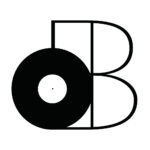



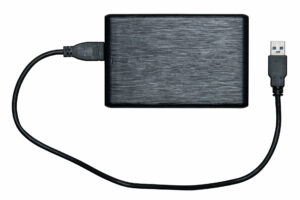





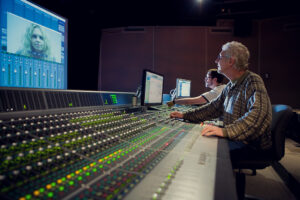
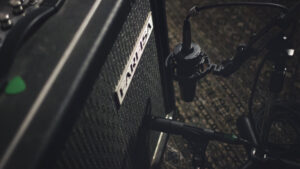
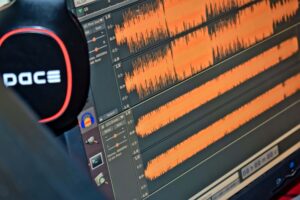
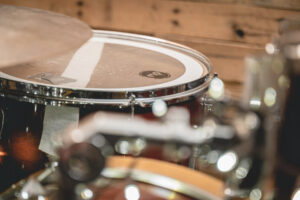
2 thoughts on “3 Best External HDDs for Music Production and Sound Design”
Thank you so much for this. Really informative. But I have a little question. You think if I storage my libraries, samples, on the WD, and run the DAW with my libraries coming from there. Do you think it will work fine?. It would be connected to the usb-c .
I just wanna free space on my laptop, and let her work less, and i was thinking maybe an external HDD for the process of the libraries would work better?
Thank you in advance!
Hey Guillermo,
I think it’s ideal to host your sample libraries on an external drive, so yes it’ll work fine!
However, it’ll still be relatively slow to load larger sample libraries. That’s why I eventually upgraded to an external Thunderbolt SSD. I make it very clear in THIS ARTICLE that you’d be wasting your money by purchasing an external SSD that doesn’t use Thunderbolt.
If you don’t have Thunderbolt ports, I recommend sticking to an external HDD.
Which drive are you planning to purchase? The WD_Black?
Let me know if you need more assistance. Thanks for stopping by, take care!
– Stefan